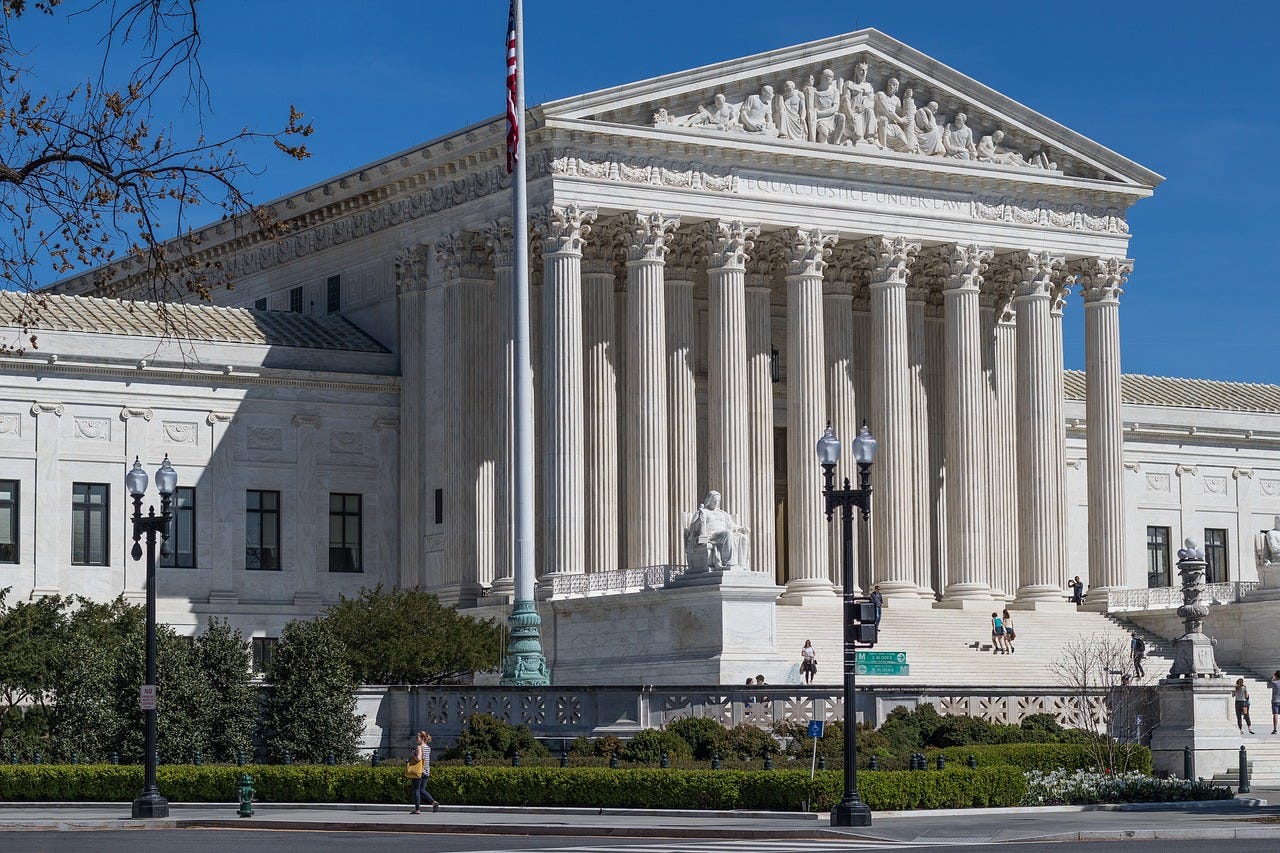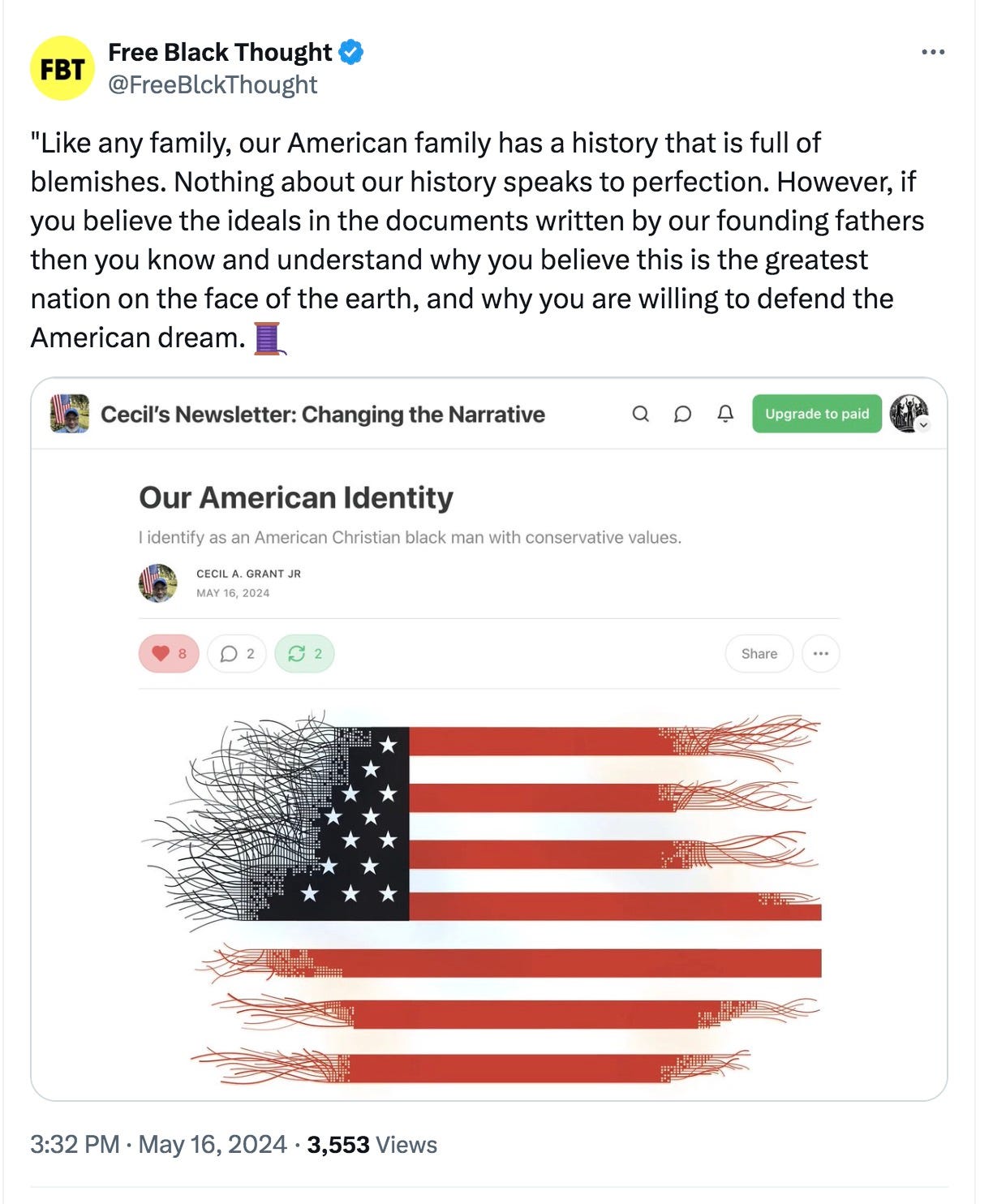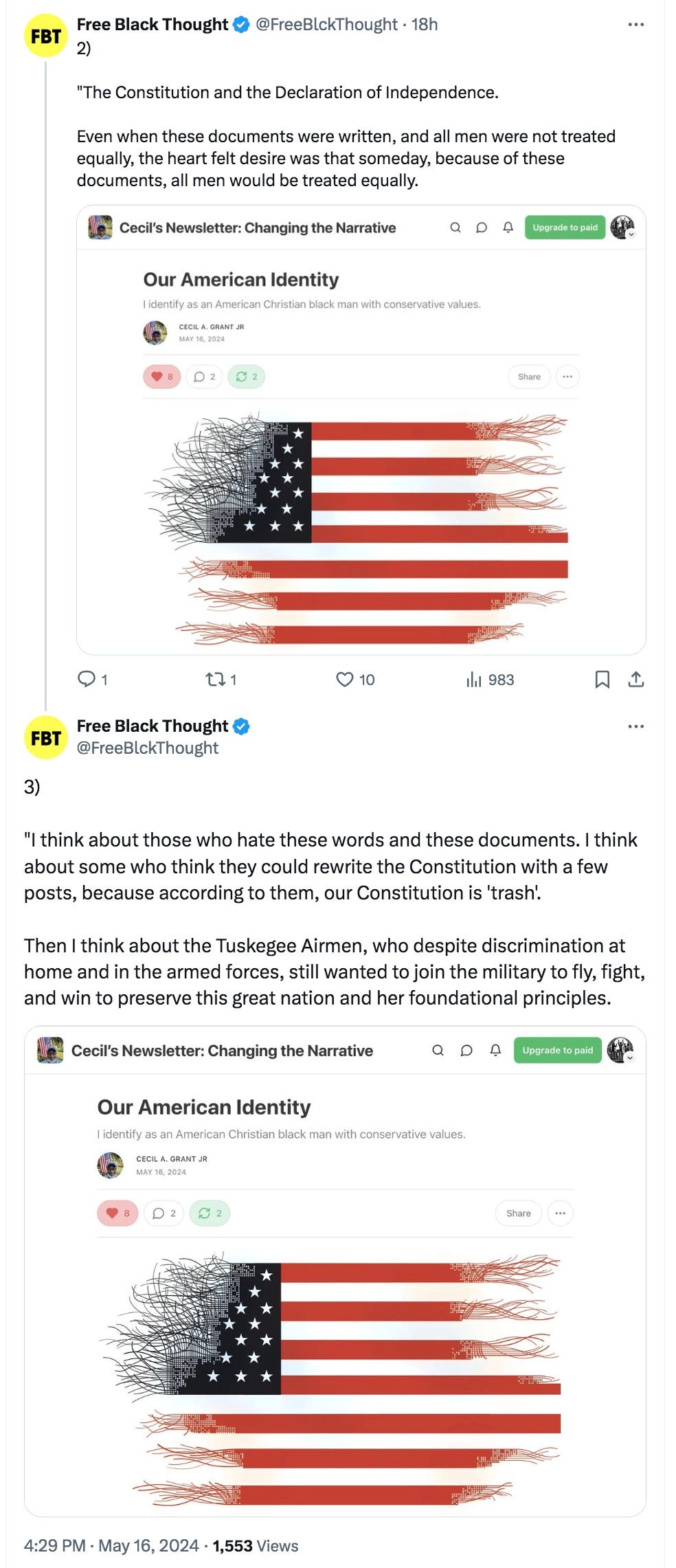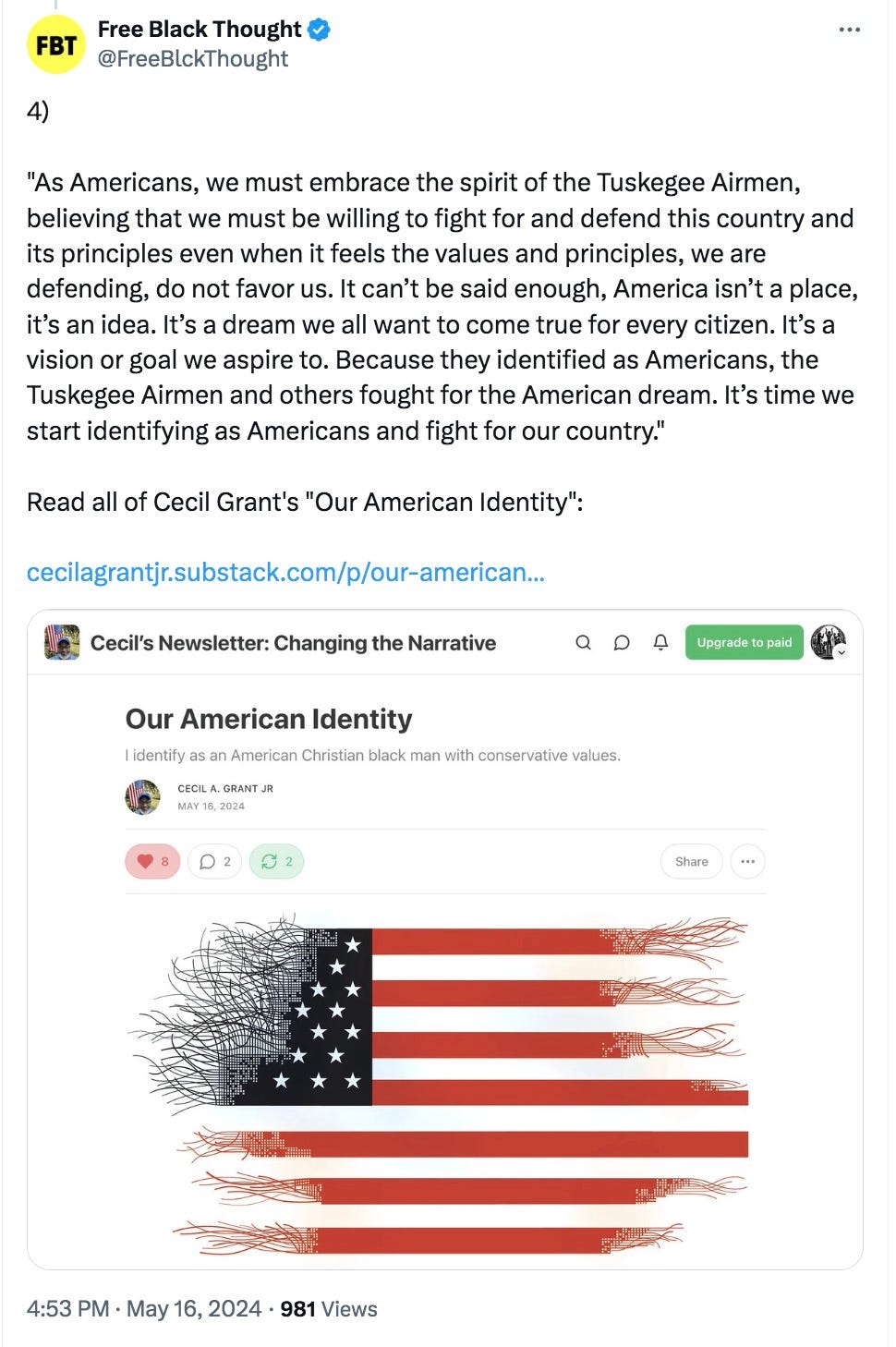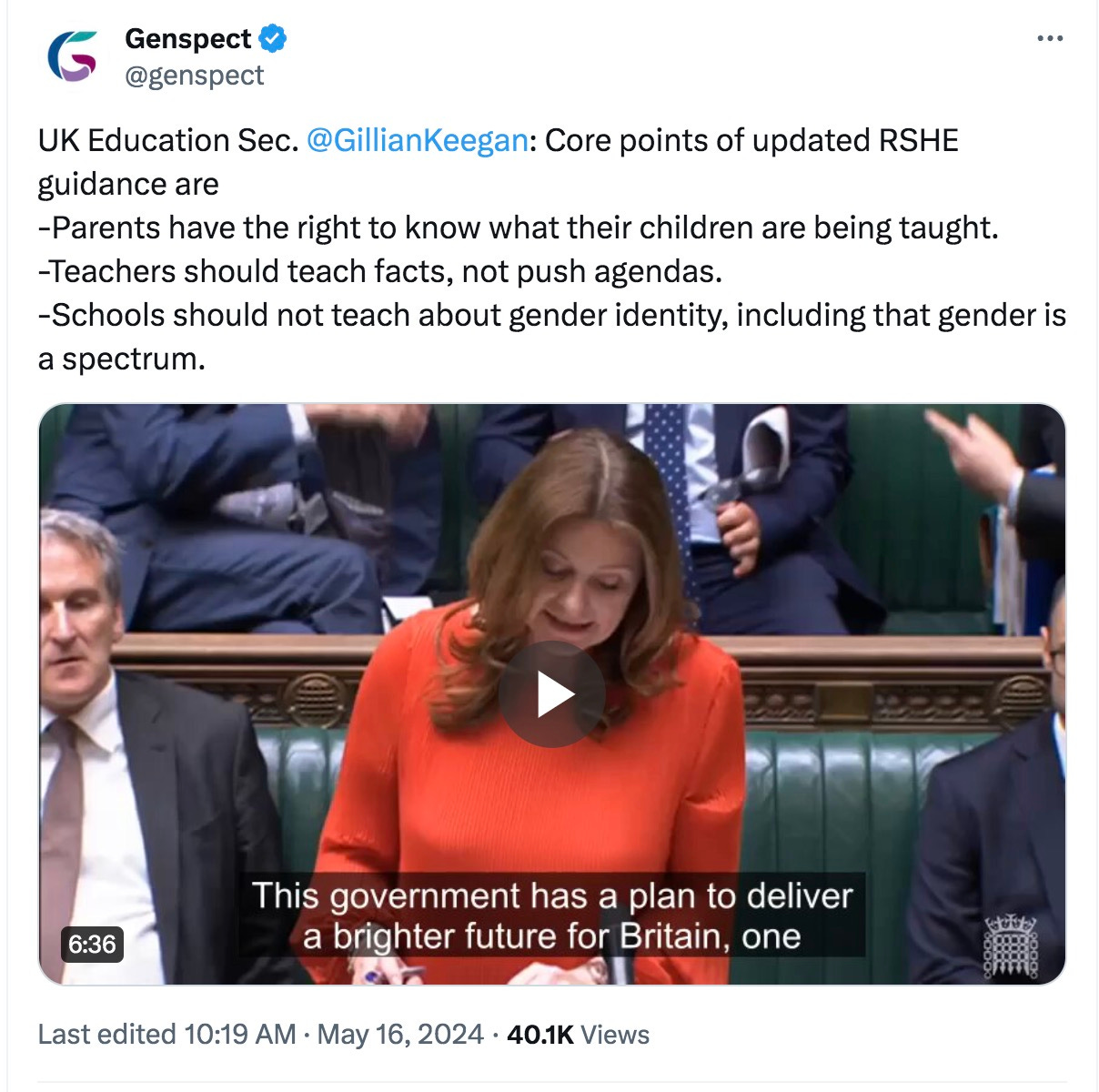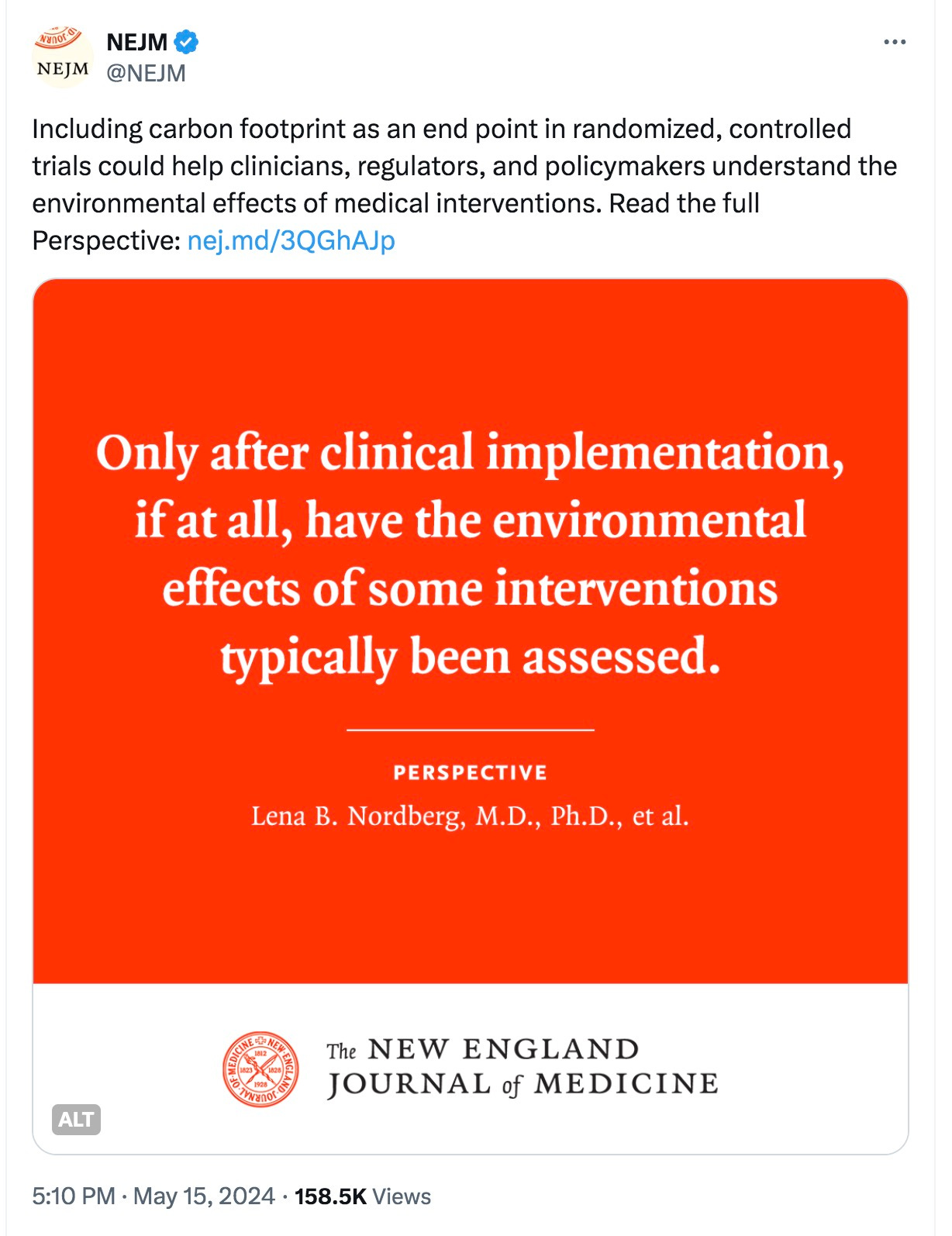E-Pluribus | May 17, 2024
The anniversary of Brown v. Board of Education; liberalism versus authoritarianism, the 2024 installment; and our global struggles: nothing new under the sun.
A round-up of the latest and best musings on the rise of illiberalism in the public discourse:
Jason L. Riley: Brown v. Board of Education: Right Result, Wrong Reason
Brown v. Board of Education is considered one of the most significant Supreme Court decisions ever, and arguably set the country on a path to securing full civil rights for all Americans. Jason L. Riley at the Wall Street Journal, however, says that the correct ends do not justify Earl Warren’s means in his landmark opinion.
The [Brown v. Board of Education] decision effectively overturned Plessy v. Ferguson (1896), which declared that “separate but equal” facilities were permissible and became the legal basis for racial segregation for more than 50 years. The Brown ruling, to its credit, aimed to end that era. Chief Justice Earl Warren wrote for a unanimous court that state-imposed racial segregation of schools was unconstitutional because sorting children by race denied black students “equal education opportunities” and thus deprived them of the equal protection of the laws guaranteed by the 14th Amendment.
How a court reaches a decision can be as important as the decision itself, and the problem we’re still grappling with seven decades later is the reasoning the justices used in Brown. Instead of declaring that Plessy was an incorrect reading of the Constitution, Warren invoked “modern authority,” or social-science research not available when Plessy was decided, to argue that segregated schools were inherently unequal in academic outcomes. In other words, the prior decision was wrong owing to new developments.
Warren’s decision to avoid a direct attack on Plessy and the South was a political calculation. He wanted the ruling to be unanimous and didn’t want the Supreme Court ahead of public opinion on racial matters, prompting a backlash. “Southern power in the mid-fifties did not stop at Congress; it sat on the Court,” wrote judge and legal scholar J. Harvie Wilkinson. “Justices as different as Hugo Black, the Alabaman, Tom Clark, the Texan, and Stanley Reed, the Kentuckian, would have resisted any opinion that pointed a finger back home.”
[. . .]
Warren’s claim that segregated schools produced inferior educational results was wrong when he wrote it in 1954. That year, an all-black high school within walking distance of the Supreme Court building sent a higher percentage of students to college than any white public high school in Washington. The same institution, Dunbar High, also had been known to outperform white high schools on standardized tests both locally and across the country. If the Supreme Court was correct in its assessment of racially separate learning facilities, how could Dunbar High School exist?
[. . .]
The Supreme Court didn’t have to rely on “modern authority.” It could have ruled, as Justice John Marshall Harlan’s Plessy dissent had, and as Thurgood Marshall and the NAACP had recommended, that the Constitution is colorblind. It could have concluded that Plessy had been wrongly decided because racially separate schools and other public facilities in the South were intended to keep blacks in a subordinate position and thus violated the 14th Amendment.
Read the whole thing.
David Brooks: The Authoritarians Have the Momentum
Both sides (or all three is you count RFK Jr.) in the upcoming election are pointing at the other as the real authoritarian in the room, and this phenomenon is replicated throughout the world as well as societies debate the tradeoffs involved with individual choice, free expression, security, and economic concerns. At the New York Times, David Brooks writes that the real battle is between liberalism and authoritarianism, and the latter currently has the upper hand.
The central struggle in the world right now is between liberalism and authoritarianism. It’s between those of us who believe in democratic values and those who don’t — whether they are pseudo-authoritarian populists like Donald Trump, Viktor Orban, Narendra Modi or Recep Tayyip Erdogan or straight-up dictators like Vladimir Putin and Xi Jinping or theocratic fascists like the men who run Iran and Hamas.
[. . .]
Liberals honor individuals’ right to see themselves with self-respect; racial slurs have become our form of blasphemy because they assault this sense of self-respect. Liberal morality tends to be horizontal — pure liberals don’t look upward to serve a living God; they look sideways and try to be kind and decent to their fellow human beings.
Pure liberals place a high value on individual consent; any kind of sex or family arrangement is OK so long as everybody agrees to it. At one point Lefebvre has a nice little riff on all the traits that make us liberals pleasant to be around. We respect autonomy and personal space, dislike hypocrisy and snobbery, and strive to achieve a live-and-let-live tolerance.
[. . .]
Liberal society can be a little lonely. By putting so much emphasis on individual choice, pure liberalism attenuates social bonds. In a purely liberal ethos, an invisible question lurks behind every relationship: Is this person good for me? Every social connection becomes temporary and contingent. Even your attitude toward yourself can be instrumentalized: I am a resource I invest in for desired outcomes.
When societies become liberal all the way down, they neglect a core truth: For liberal societies to prosper they need to rest on institutions that precede individual choice — families, faiths, attachments to a sacred place. People are not formed by institutions to which they are lightly attached. Their souls and personalities are formed within the primal bonds to this specific family, that specific ethnic culture, this piece of land with its long history to my people, to that specific obedience to the God of my ancestors.
[. . .]
The great strength of the authoritarians who oppose liberal principles, from Trump to Xi to Hamas, is that they play straight into the primordial sources of meaning that are deeper than individual preference — faith, family, soil and flag. The authoritarians tell their audiences that the liberals want to take all that is solid — from your morality to your gender — and reduce it to the instability of a personal whim. They tell their throngs that the liberals are threatening their vestigial loyalties. They continue: We need to break the rules in order to defend these sacred bonds. We need a strongman to defend us from social and moral chaos.
Read it all here.
Martin Gurri: Scenes From a Global Struggle
At Discourse Magazine, Martin Gurri writes on a theme similar to Brooks in the preceding piece. While his essay covers a broad range of examples, the following excerpt focuses on the conflict between Israel and its enemies and the elements common to numerous struggles throughout the modern world.
On October 7, 2023, the Islamist terrorist group Hamas burst out of its lair in Gaza and began murdering Israeli civilians. The atrocities perpetrated are well known, in part because the murderers boasted of them online. Before the Israelis could fire a shot in response, they were accused by all right-thinking elites of genocide. And not just Israelis—all “Zionists” were guilty of this crime. And not just Zionists but that scapegoat of history, the Jew, who now stood for the white oppressor and colonizer, the capitalist exploiter, ultimate avatar and expression of all that is deformed in normie society.
In Britain, attacks against Jews skyrocketed to record levels, many of them occurring within the privileged precincts of the universities. As Jews endured public abuse and harassment, the police made it clear they were not in business to protect them. In one infamous incident during an anti-Israel protest, a London police officer threatened to arrest a man for being “quite openly Jewish” and thus causing “a breach of the peace,” even as the mob shouted “Scum!” at the offender. A tarp was hastily thrown over London’s memorial to the Holocaust, to obliterate a monstrous memory and no doubt prevent another breach of the peace.
In France, “antisemitic acts” have “exploded” since October 7, according to the interior minister. Prestige universities like Sciences Po have been “occupied” by angry students demanding an end to the “genocide” in Gaza. Jean-Luc Mélenchon, leader of the country’s extreme left, has refused to qualify the murder of over 1,000 Israeli men, women and children as a “terrorist” act. For Mélenchon, the massacre was simply payback: “Violence,” he affirmed, “begets violence.”
While Europe has a venerable tradition of persecuting Jews, the frenzy reached fever pitch here in the United States: When it comes to the war on normies, we set the tone for the rest of the world. At elite universities like Columbia and Harvard, Jewish students were mobbed, stabbed and told to “go back to Poland.” The throngs of chanting and posturing zealots on campus made for an intimidating environment: In one poll, more than 50% of Jewish university students said they felt “scared” for their safety. This was not an irrational attitude. A leading voice at Columbia’s “Gaza Solidarity Encampment”—personal pronouns: “he/she/they”—boasted online that “I fight to kill” then observed, “Zionists don’t deserve to live.”
If a similar statement had been made about Blacks or gays, the whole panoply of institutional power, from the White House and the media on down, would scream its rage from the rooftops until the rest of us went deaf. But we are talking about the Jews. As in Britain and France, actual antisemitic violence has reached record levels in our country. For the denizens of our institutions, however, that is at worst collateral damage—and for many, it’s a successful experiment in establishing control.
Who are the protesters—and in what sense can they be said to reflect elite opinion? The majority are young herd animals, morally neutered to repeat whatever slogans are fed to them by their generational commissars. Like every decadent class, our elites value leadership and courage much less than conformity. As for the activists, they know little and care less about Palestine or Israel. They belong to the “anti-capitalist” progressive left, which provides the ideological lever with which the elites hope to move the world, and they fully expect that, after being schooled in righteous protest, they will ascend to the positions of power which their parents currently inhabit. Those arrested during the protests are now demanding “amnesty,” so their future careers will not be damaged.
There’s an unbearable lightness to these people, but their hatred of traditional society may be accepted as sincere. The Jew, the eternal Other, they take to be the foulest product of that society: a supercapitalist and hypernormie. He must be put in his place. Anyone with a sense of history can only wonder how many times before this tawdry script has played out.
Read it all.
Around Twitter (X)
Here are some excerpts of Cecil Grant's "Our American Identity" via Free Black Thought:
Via Wesley Yang, the British education system is taking the lead on schools and gender. Click for video.
And finally, to put this from the New England Journal of Medicine in layman’s terms, will saving the patient’s life help the planet?




